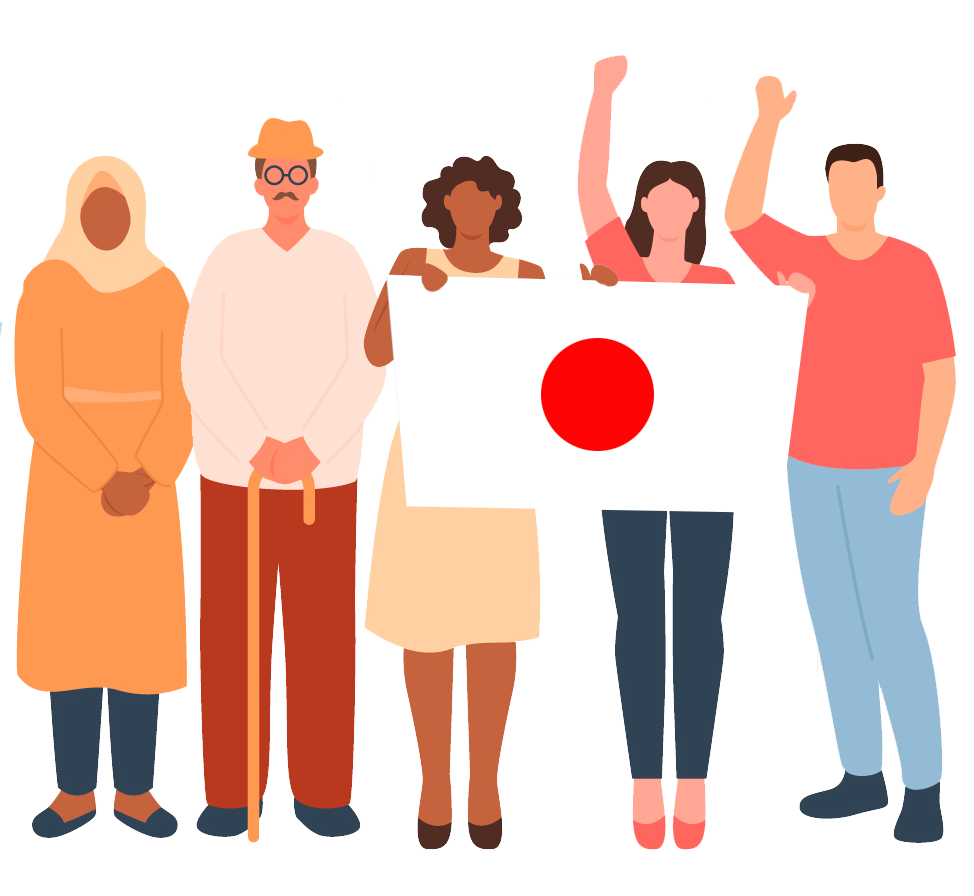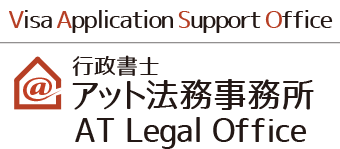Steps to Obtain a Japanese Citizenship and Our Services.
.png)
Naturalization
Whether you were born in Japan or have lived in Japan for an extended period, as a foreign national residing in Japan, certain restrictions still apply. While obtaining Japanese citizenship through naturalization is an option, the screening process has become more stringent each year, and applications should be approached with care.
In this article, we will explain the naturalization process and highlight key points to keep in mind when applying.

What is Naturalization ?
When a foreign national wishes to acquire Japanese citizenship, they must apply for naturalization permission.
As a general rule, a visa is required to stay in Japan as a foreign national, but acquiring Japanese citizenship allows you to reside in Japan without the need for a visa. After naturalization, you will also gain the right to vote and may find it easier to pass the loan approval process. However, please note that Japan does not recognize dual citizenship, meaning you will lose the citizenship of your home country.
Requirements for Naturalization Permission
There are seven requirements for naturalization in Japan,
① Residency Requirement
You must have lived in Japan for at least five years prior to applying for naturalization, and during that period, you must have worked in Japan for at least three years. Although the continuous residence requirement is five years, you may not be considered to have fulfilled this if:
- You have been outside of Japan for a total of 100 days or more in one year.
- You have been outside of Japan for more than 90 consecutive days.
If you have unavoidable circumstances that lead to the above situations, you will need to prepare supporting documents to explain the reasons.
② Good Conduct Requirement
Applicants must demonstrate good conduct. This includes being up-to-date on payments for pensions, taxes, and other obligations, and having no violations of laws or regulations. Particularly, violations of the Immigration Control and Refugee Recognition Act will result in stricter scrutiny, so it’s essential to avoid overstaying.
③ Good Conduct Requirement
Applicants must demonstrate good conduct. This includes being up-to-date on payments for pensions, taxes, and other obligations, and having no violations of laws or regulations. Particularly, violations of the Immigration Control and Refugee Recognition Act will result in stricter scrutiny, so it’s essential to avoid overstaying.
④ Livelihood Requirement
You must have sufficient income to support yourself in Japan. This requirement is assessed based on your household income. Even if you personally have no income, the financial stability of your spouse or relatives will be considered. Generally, an annual income of around 3 million yen is required for a single. A higher income level may be necessary if you have dependents.
⑤ Nationality Requirement
Japan does not permit dual citizenship. If you wish to acquire Japanese citizenship, you must renounce your current nationality. However, in cases where it is impossible to renounce your current nationality, exceptions may be made.
⑥ Ideological Requirement
Individuals who plan or support the violent overthrow of the Japanese government, or who belong to organizations advocating such actions, will not be granted naturalization.
⑦ Language Proficiency Requirement
Applicants must pass a Japanese language examination as part of the application process. While a level equivalent to N3 of the Japanese Language Proficiency Test is generally sufficient, the language test during the naturalization process is not merely a formality. Even if you pass N3, poor communication with the examiner during the interview may result in a negative assessment of your language skills.
Process for obtaining a Japanese Citizenship
The following steps outline the process for obtaining Japanese Chitizenship.
Applying for naturalization requires the submission of a large number of documents. If many of these documents need to be obtained from your home country, you will not only need to request them but also have them translated into Japanese. Since document preparation can be time-consuming, it is crucial to manage your schedule carefully and plan well in advance.
Gather all the necessary documents for the naturalization application. The number of documents required can easily exceed 100. If you are a business owner, additional documents may be required, so be thorough in your preparations.
You will need to visit the Legal Affairs Bureau in person to submit your application. Keep in mind that an appointment is required for submitting your naturalization application. Double-check your documents beforehand to ensure there are no mistakes or missing items, as they cannot be corrected on-site.
Two to three months after submitting your application, the Legal Affairs Bureau will contact you to schedule an interview. During the interview, you will be asked questions based on the documents you submitted. Be prepared to answer thoroughly. A Japanese language test may also be conducted at this stage.
The processing time for your application varies depending on your individual circumstances and the volume of applications. On average, the process takes about one year. However, in some cases, it may take over a year and a half to receive approval, so it’s important to apply well in advance.
Important Points for Obtaining a Japanese Citizenship
The screening process for naturalization applications has become more stringent each year. Below are three key points to keep in mind when applying for Japanese citizenship:。
Changes After Application
As mentioned, it can take over a year from the time you apply for naturalization until permission is granted. If any of the following changes occur during this period, you must notify the Legal Affairs Bureau:
- Change of residence or contact information
- Change of employer or school
- Change in status of residence or period of stay
- Violation of laws or regulations (including traffic violations)
Simultaneous Application by Family Members
If only one spouse in a foreign couple applies for naturalization, a reasonable explanation must be provided. The screening process emphasizes the applicant’s residency and commitment to living in Japan. You may be asked why your spouse is not applying at the same time or if you plan to move abroad in the future.
From the screening authorities’ perspective, it is often more advantageous for the entire family to apply for naturalization together if they plan to reside in Japan permanently.
Non-Payment or Delinquency of Health Insurance, Pension, and Taxes
Failure to pay health insurance, pension contributions, or taxes can lead to the denial of your application. While employees typically have these payments deducted from their salaries, sole proprietors and business owners must manage their own payments. Paying overdue amounts in one lump sum does not guarantee approval. To avoid issues, ensure that all payments are up to date before applying.
What We Offer
The screening process for naturalization applications has become increasingly stringent each year, making it challenging to navigate the application on your own. Additionally, the interview component can leave some applicants feeling anxious about how to prepare.
We offer guidance on the best timing and methods for applying for naturalization, ensuring you are well-prepared for the interview process.
Applying for Japanese Citizenship (Salaried Employees): From 150,000 yen
We provide assistance with documentation, application procedures, scheduling, and other aspects required for obtaining Japanese citizenship for salaried employees.
Applying for Japanese Citizenship (Company Directors): From 200,000 yen
We provide assistance with documentation, application procedures, scheduling, and other aspects required for obtaining Japanese citizenship for company directors.
If you have any questions, please send us a message through the LinkedIn account or the contact form below.




